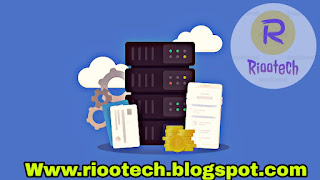Banking As A Service Platform-Riootech
Banking as a platform means that a fintech or any other software/tech company can develop a service and "rent" it to the bank.
On the other hand, Banking as a Platform (BaaP for short) allows fintech and non-financial companies to provide services to banking institutions.
With BaaS, third-party providers such as financial technology (fintech) companies, digital banks, and other non-banking organizations can pay for access to key systems and functions of licensed banks.
In some cases, licensed and regulated banking backends are provided by fintech companies that offer BaaS splatforms while also providing basic banking service.
An open banking operating model means that banking platforms use open APIs that allow third-party developers to create applications and services for financial institutions.
BaaS relies on the authorization of a banking platform through which banks open their APIs to fintech companies to use and provide certain banking services to their customers.
Banking-as-a-Service (BaaS) platforms allow banks to open up their APIs to third parties to develop new services, increasing financial transparency.
The banking-as-a-service process begins with a regulated financial institution opening its API (special code created to facilitate interaction between systems) to fintech companies, digital banks, or other third-party providers who pay to enter the BaaS platform. .
The BaaS platform opens its APIs to fintech companies, thereby providing access to the systems and information necessary to create new banking products or provide white label banking services.
Fintech companies are given secure access to banking services, followed by the integration of banks' APIs with vendor products to further provide a seamless banking experience using modern technology.
Once accessed, third-party providers must be able to use their systems to create and offer banking products and services.
A service provider may have a banking license, such as Dutch payments company Adyen, or it may enter into a partnership with a separate regulated and licensed banking institution to gain access to essential financial products and services.
This banking model provides non-banking businesses with access to banking systems and information via APIs.
Benefits of banking as a service and banking as a platform
Banking as a service technology platforms provide customers with easy-to-implement APIs so that developers can directly integrate customized financial services into their products and services.
Through the API, FinTech and other third party service providers (TPSPs) can help banks offer transparent, recurring, and personalized financial services to customers alongside existing banking services.
Banking as a Service or BaaS can be defined as an end-to-end process where fintechs, non-fintechs, fintech developers or any third party can take advantage of financial services by accessing and running services unnecessarily develop them.
BaaS is an internal process that allows banks to transfer, store, and lend money so that businesses can offer financial products and services.
BaaS also allows third parties to bypass certain development steps through the ability to access the bank, rather than building their own processes from scratch. BaaS platforms allow fintech companies and other third parties, as well as banks and credit unions, to connect to licensed and regulated banking backends through APIs (application programming interfaces) so that they can build financial services applications.
Banking as a Service (BaaS) enables authorized financial institutions with a physical or fully digital presence to deploy a wide range of online banking technology solutions from trusted service providers through a quick-start application programming interface (API).
BaaS offers licensed banks the ability to integrate digital banking, lending, account management and payment services through their websites and applications.
With a BaaS digital banking platform, non-banks can take these advancements to a whole new level by giving their customers access to additional financial products.
Next-generation digital banking platforms like Cyberbank support BaaS models not only by adding a nice level of experience to existing banking systems, but by supporting the entire product lifecycle.
As for the future prospects of BaaS, all brands are likely to include funding through banking platforms as a service, making financial products and services available at the time customers need them.
BaaS benefits fintech companies that provide small business platforms by expanding their offerings to include digital banking services such as checking accounts, mobile wallets and online bill payments.
With BaaS, almost any business can unlock open banking opportunities and create financial solutions from the ground up.
BaaS is an end-to-end model that allows digital banks and other third parties to connect directly to the banking system via APIs so that they can build banking products on top of the provider's regulated infrastructure and unlock it by transforming global financial services Landscape of open banking opportunities.
Thanks to BaaS, almost any business can become a banking service provider, relying on the complex technology and complex infrastructure of traditional banks.
What is Banking as a Platform?
BaaS provides businesses with faster availability, payment security, and other premium financial services through regulated banks that don't have accounts.
Fintechs also have the flexibility to meet almost any financial need of potential clients, so partnering with them allows banks to continue to benefit from the robust value chain built into the platform.
Some of the most technologically advanced companies in the world, like Apple, Uber, Walmart, Samsung or Amazon, already offer financial services to their customers with built-in finance, which means using banking-as-a-service platforms and banking APIs.
Allows banks to dynamically create new financial products, distribute products through multiple touchpoints (for example, your bank portal, partner online portal or e-marketplace application), deliver high-precision financial products to consistently reach the right audience . Pack your products at the right time for the best online self-service experience.
Provider refers to a fintech bank or legacy bank that provides a BaaS platform that allows brands to integrate banking products into their existing product offerings using API technology to provide a seamless end-to-end customer experience.



